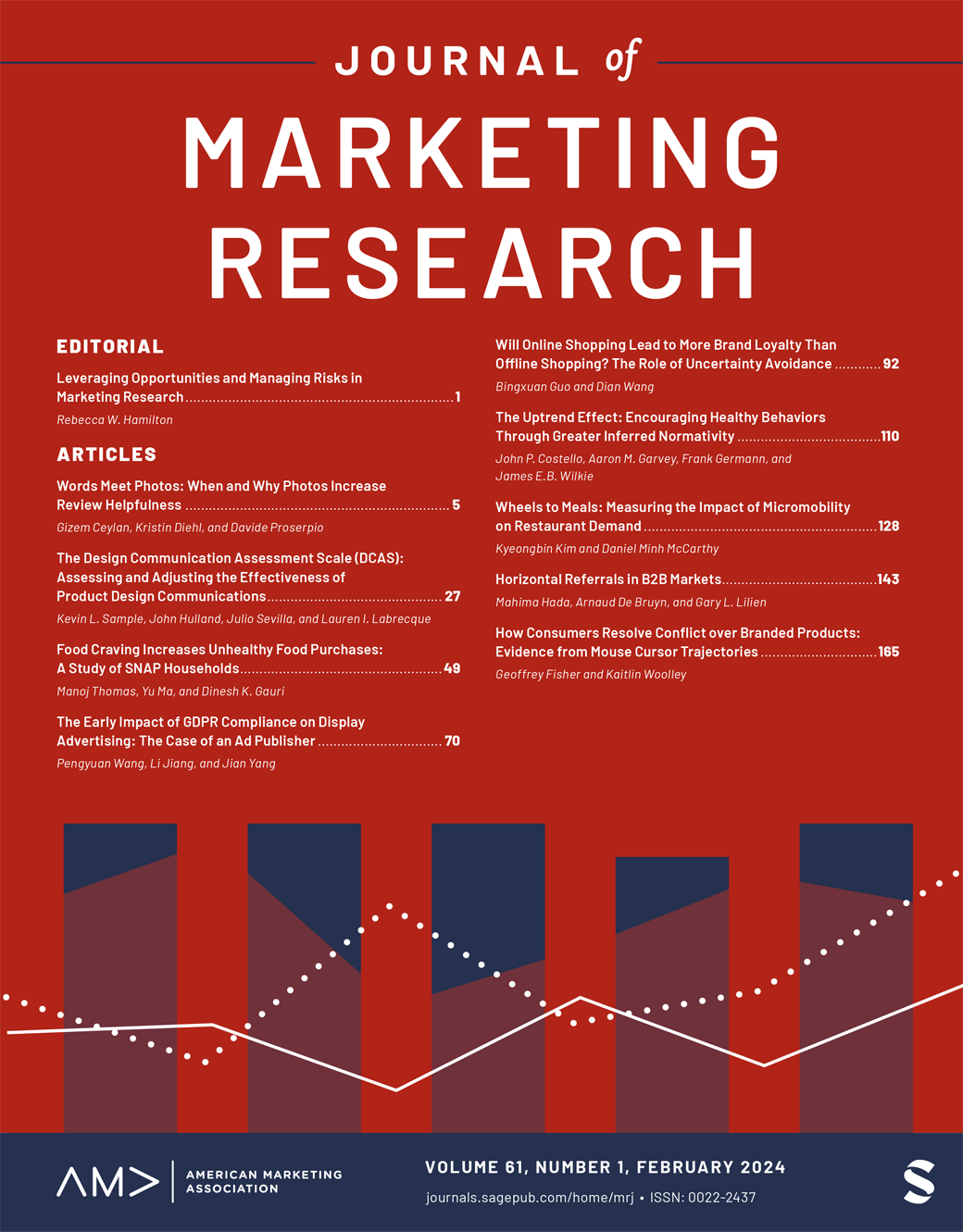帮助那些隐藏:预期的耻辱驱动隐藏和破坏性的债务循环
IF 5
1区 管理学
Q1 BUSINESS
引用次数: 1
摘要
债务积累与物质主义、冲动、短视、自我控制和生活方式偏好有关。然而,运用污名化理论,可以对获得各种信贷相关产品的中产阶级个人的债务积累有新的见解。作者将预期的债务污名定义为个人预期的负面判断和歧视,因为他们的消费债务。一系列研究的结果表明,尽管财务压力会激发旨在减少债务的行为,但预料到被污名化的债务人会表现出各种隐藏行为(保密、社会支出和帮助回避),从而阻碍债务减少,并对幸福感产生负面影响。为了了解如何帮助这些人,作者与一家金融教育公司合作,设计了一个实地实验来检验行为改变课程的效果。预见到被污名化并在以社区为基础的条件下形成新的社会关系的个人减少了他们的消费债务。虽然社区支持的情感影响已经在其他耻辱背景下进行了研究,但本研究首次调查了债务背景下对幸福感的影响,并首次将社会福利与债务减少行为和债务偿还方面的实际行为改变联系起来。本文章由计算机程序翻译,如有差异,请以英文原文为准。
EXPRESS: Helping Those That Hide: Anticipated Stigmatization Drives Concealment and a Destructive Cycle of Debt
Debt accumulation has been linked to materialism, impulsivity, short sightedness, self-control, and lifestyle preferences. However, applying stigma theory allows novel insights into debt accumulation for middle class individuals who access a variety of credit-related products. The authors define anticipated stigmatization of debt as the negative judgment and discrimination an individual expects to experience because of their consumer indebtedness. Results from a series of studies demonstrate that although financial stress motivates behaviors designed to reduce debt, debtors who anticipate stigmatization perform a variety of concealment behaviors (secrecy, social spending, and help avoidance) that hinder debt reduction and have negative effects on well-being. To understand how to help these individuals, the authors collaborated with a financial education company, designing a field experiment to examine the efficacy of a behavior change course. Individuals who anticipated stigmatization and formed new social connections in a community-based condition reduced their consumer debt. While the emotional effect of community-based support has been examined in other stigma contexts, this study is the first to investigate the effect on well-being in a debt context, and the first to link social benefits to actual behavior change in terms of debt reduction behaviors and debt repayment.
求助全文
通过发布文献求助,成功后即可免费获取论文全文。
去求助
来源期刊

Journal of Marketing Research
BUSINESS-
CiteScore
10.30
自引率
6.60%
发文量
79
期刊介绍:
JMR is written for those academics and practitioners of marketing research who need to be in the forefront of the profession and in possession of the industry"s cutting-edge information. JMR publishes articles representing the entire spectrum of research in marketing. The editorial content is peer-reviewed by an expert panel of leading academics. Articles address the concepts, methods, and applications of marketing research that present new techniques for solving marketing problems; contribute to marketing knowledge based on the use of experimental, descriptive, or analytical techniques; and review and comment on the developments and concepts in related fields that have a bearing on the research industry and its practices.
 求助内容:
求助内容: 应助结果提醒方式:
应助结果提醒方式:


